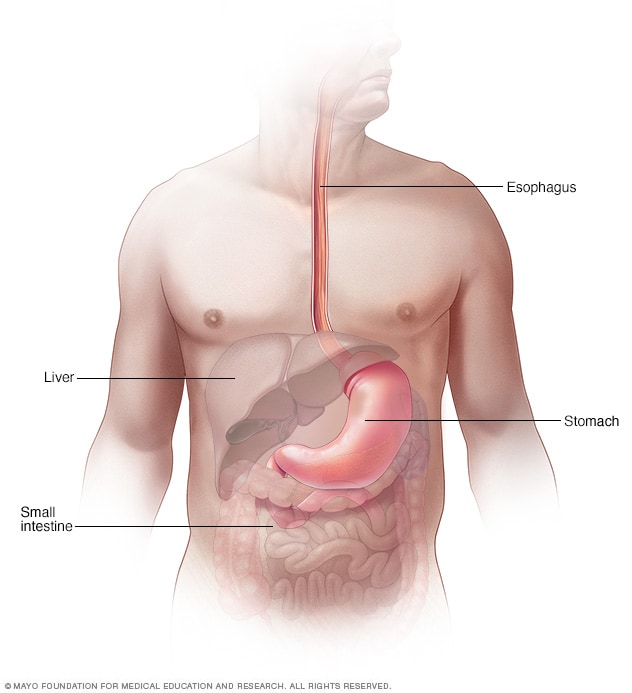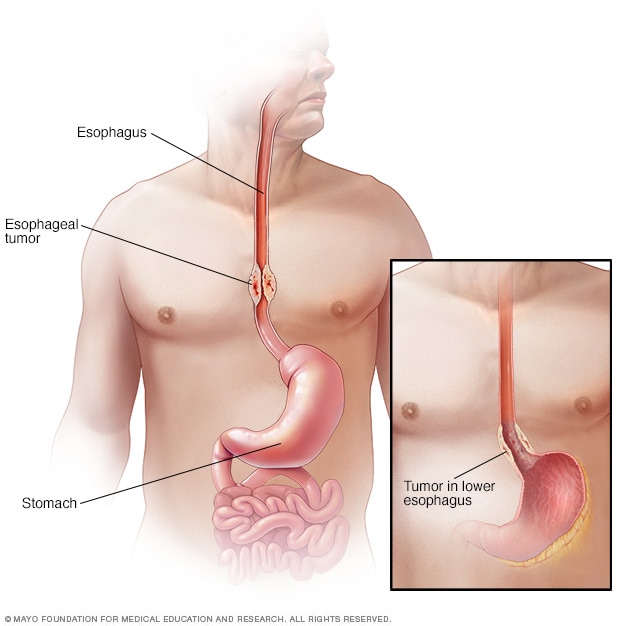 EsophagusOpen pop-up dialog box
EsophagusOpen pop-up dialog box
Esophageal cancerOpen pop-up dialog box
Esophageal cancer is cancer that occurs in the esophagus — a long, hollow tube that runs from your throat to your stomach. Your esophagus helps move the food you swallow from the back of your throat to your stomach to be digested.
Esophageal cancer usually begins in the cells that line the inside of the esophagus. Esophageal cancer can occur anywhere along the esophagus. More men than women get esophageal cancer.
Esophageal cancer is the sixth most common cause of cancer deaths worldwide. Incidence rates vary within different geographic locations. In some regions, higher rates of esophageal cancer may be attributed to tobacco and alcohol use or particular nutritional habits and obesity.
Products & Services
Book: Mayo Clinic on Digestive Health
Symptoms
Signs and symptoms of esophageal cancer include:
Esophageal cancer is cancer that occurs in the esophagus — a long, hollow tube that runs from your throat to your stomach. Your esophagus helps move the food you swallow from the back of your throat to your stomach to be digested.
Esophageal cancer usually begins in the cells that line the inside of the esophagus. Esophageal cancer can occur anywhere along the esophagus. More men than women get esophageal cancer.
Esophageal cancer is the sixth most common cause of cancer deaths worldwide. Incidence rates vary within different geographic locations. In some regions, higher rates of esophageal cancer may be attributed to tobacco and alcohol use or particular nutritional habits and obesity.
Products & Services
Book: Mayo Clinic on Digestive Health
Symptoms
Signs and symptoms of esophageal cancer include:
Difficulty swallowing (dysphagia)
Weight loss without trying
Chest pain, pressure or burning
Worsening indigestion or heartburn
Coughing or hoarseness
Early esophageal cancer typically causes no signs or symptoms.
When to see a doctor
Make an appointment with your doctor if you have any persistent signs and symptoms that worry you.
If you've been diagnosed with Barrett's esophagus, a precancerous condition caused by chronic acid reflux, your risk of esophageal cancer is higher.
Ask your doctor what signs and symptoms to watch for that may signal that your condition is worsening.
Screening for esophageal cancer may be an option for people with Barrett's esophagus.
Screening for esophageal cancer may be an option for people with Barrett's esophagus.
If you have Barrett's esophagus, discuss the pros and cons of screening with your doctor.